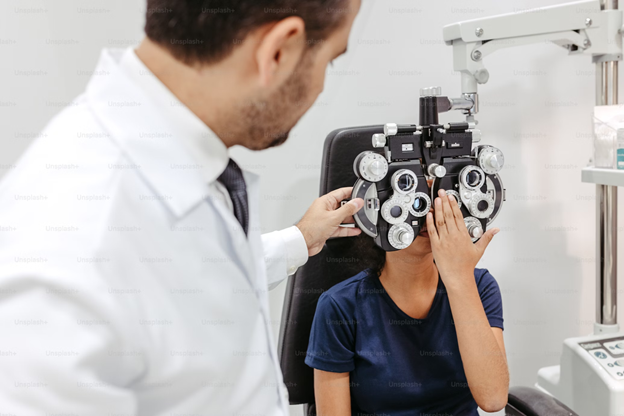
Pediatric ophthalmology is all about taking care of kids’ eyes. It’s not just about glasses; it’s about making sure children can see clearly and comfortably as they grow. From newborns to teenagers, every child deserves good vision to learn, play, and explore the world around them.
This branch of medicine focuses on diagnosing and treating eye problems specific to children, ensuring their eyesight develops properly from a young age.
Why Early Eye Care Matters
Early detection of eye problems in children is crucial because their eyes are still developing. Problems like lazy eye (amblyopia), crossed eyes (strabismus), or even simple refractive errors can affect a child’s ability to learn and interact with others. Pediatric ophthalmologists and psychiatry experts are trained to detect these issues early on and provide interventions that can prevent long-term vision problems.
Specialized Expertise
Pediatric ophthalmologists are like detectives for children’s eyes. They have special training beyond regular eye doctors to understand how kids’ eyes work and what can go wrong. Imagine them as experts who know exactly how to examine a child’s eyes, even if the child can’t read or talk yet. They use special tools and techniques to make sure nothing gets missed.
Beyond Glasses: Treatments and Therapies
Sometimes, kids need more than just glasses. Pediatric ophthalmologists can perform surgeries, prescribe eye drops, or use special exercises to help kids’ eyes get stronger. For example, they might patch a child’s stronger eye to make the weaker eye work harder and catch up. These treatments are designed to be gentle and effective, tailored specifically to each child’s needs.
The Role of Technology
Technology has made a big difference in pediatric ophthalmology. Now, there are machines that can take pictures of a child’s eyes without touching them at all. This makes it easier for doctors to see what’s going on inside the eye and diagnose problems faster. It also means that treatments can be more precise, helping kids get better, faster.
Collaboration with Other Specialists
Pediatric ophthalmologists often work closely with other doctors, like pediatricians or even psychiatrists. This collaboration is important because sometimes eye problems can be related to other health issues. For example, a child with a rare genetic condition might need input from both a children’s ophthalmology surgeon and a genetics specialist to get the best care possible.
Emotional Impact on Families
Discovering that your child has an eye problem can be scary for parents. They want the best for their children, and good vision is a big part of that. Pediatric ophthalmologists understand this and take the time to explain things in ways that families can understand. They provide support and reassurance throughout the journey of diagnosis and treatment.
Conclusion
In conclusion, pediatric ophthalmology is not just about eyes—it’s about giving children the best start in life. By ensuring early detection and appropriate treatment of eye problems, pediatric ophthalmologists play a vital role in preserving and improving children’s vision.
Their specialized knowledge, combined with advanced technology and a caring approach, makes a significant difference in the lives of young patients and their families. So, the next time you see a children’s ophthalmology surgeon, remember they are not just doctors; they are heroes helping kids see the world clearly.

